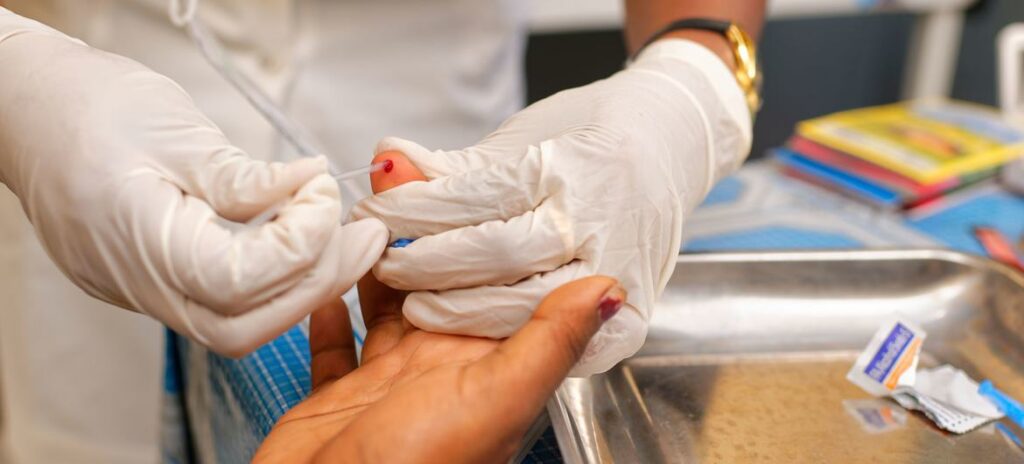Global Courant 2023-04-13 14:03:07
© UNICEF/Rindra Ramasomanana – An expectant mother is tested for HIV in the Analanjirofo region of Madagascar.
New York, USA, April 13, 2023-/African Media Agency(AMA)/-Full funding of the HIV response in Africa will bring significant health, social and economic benefits to the continent, a new report backed by the UN agency committed to ending AIDS (UNAIDS) has revealed.
The report is based on research from the Economist Impact partnership in 13 African countries, A triple dividend: the health, social and economic benefits of financing Africa’s HIV responseestimates that millions of lives will also be saved if funding comes along.
Not only would there be between 40 and 90 percent fewer new HIV infections, depending on the country, but investing in ending the HIV epidemic would also improve educational outcomes, especially for young women and girls, reduce gender inequality reduce women and stimulate economic growth.
“This report comes at a critical time with evidence that should act as a catalyst for political decisions to ensure full HIV funding, which will have substantial social and economic outcomes,” said Winnie Byanyima, executive director of UNAIDS.
“It will put African countries on the path to building more resilient healthcare systems and being better prepared for future pandemics.”
‘Triple dividend’
The report shows that failure to mobilize the required funding to end AIDS as a threat to public health by 2030 has significant health, social and economic costs.
“Countries in Africa face significant challenges in securing the necessary resources to increase domestic funding for HIV response,” said Rob Cook, clinical program director at Economist Impact.
“Policymakers will have to think innovatively about how to use existing funding more effectively. Leveraging existing community-based networks could play a key role in both mobilizing additional resources for the HIV response and ensuring it is equitable and reaches those most in need.”
Fighting HIV during global crises
Recent global crises including COVID-19 and the war in Ukraine have jeopardized efforts to tackle the HIV epidemic and put strong pressure on funding for health care, among other things Sustainable Development Goals (SDGs).
Young women, children and other vulnerable populations will pay the highest price as pre-existing health and socio-economic inequalities widen, according to UNAIDS.
The significant fiscal challenges faced by African countries have limited their ability to increase domestic funding for HIV response and constrain overall health budgets.
Economist Impact’s research points to the need for policies aimed at both generating new revenue streams and maximizing the use of existing funds and resources.
Global goals for 2025 include reducing new HIV infections to less than 370,000 (from 1.5 million by 2021), reducing HIV infections among adolescent girls and young women to less than 50,000, and reducing the number of people dying from AIDS-related illnesses to less than 250,000 (compared to 650,000 in 2021).
Distributed by African Media Agency (AMA) on behalf of UN NEWS
The mail ‘Full funding’ of HIV response in Africa will save millions of lives: UNAIDS appeared first on African media agency.
Source: African Media Agency (AMA)








